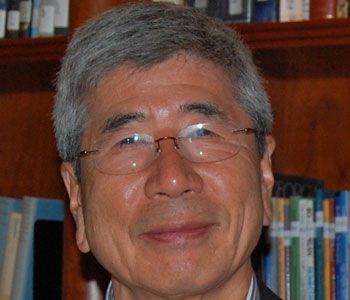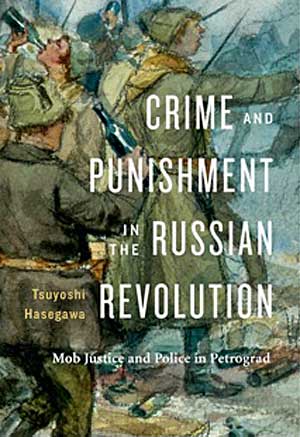
The story of the Russian Revolution has more often been told from the perspective of the active participants in the revolution, whether they were the leaders of political groups or social groups who actively participated in the revolutionary process. Rarely has it been told from the perspective of ordinary people who were swept up in the process of revolutionary change. This book examines how the revolution affected ordinary people and, in turn, how their reaction influenced the course of events.
There was euphoric excitement after the February Revolution. Having acquired freedom and equality, people expected life to improve immediately. But life only got worse. Electricity and the water supply dwindled, and soon stopped. Garbage piled up in the streets and courtyards, uncollected. The city stunk so bad that newspapers commented that even an elephant would faint. Worst of all, basic food became scarce. People stood for hours in long queues for a mere loaf of bread. Horses, dead from starvation, lay strewn about in the city’s major streets, and signs were posted not to eat dead horses. Dogs disappeared, ending up in people’s stomachs. Epidemics spread, and hospitals were overwhelmed.
As horrible as this all was, the most frightening change was the sharp rise of crime, especially violent crime. The tsar was gone and with the tsar the tsarist police was also annihilated. The newly created municipal police, inexperienced and untrained, were infiltrated by former criminals. Pickpockets became muggers. Robbers became murderers. People believed that merchants were taking advantage of shortages and the economic decline to the detriment of a population already suffering from rationing and deprivation. An ugly specter of anti-Semitism reared its head in mob justice against merchants.
The old court system was paralyzed, and temporary new courts passed erratic verdicts without solid legal basis. Soon, even the temporary courts were abolished, leaving the citizens nowhere to go to lodge their complaints. Likewise, the prison system broke down, leading to mass escapes and returning criminals to the streets.
How did people react to all this?
Longing for order and security that political authorities could not provide, people took the law into their own hands. Crowds turned to mob justice. When witnessing a crime, people attempted to catch the thieves, even petty thieves, then surrounded the perpetrators, and there on the spot, beat them up, kicked them, sometimes even tearing their limbs, or shot them point-blank, or paraded them through the streets, tied them to carts, and then often ended the punishment by throwing them into the canals and rivers to enjoy watching them drown.
Mob justice was not merely an expression of rage against criminals and speculators. This was an expression of the frustration and anger of ordinary people felt about deteriorating life in general. This brutal violence is one of the most prominent, frightening, and often ignored aspect of the Russian Revolution. The revolution brought out the worst of human emotions—hatred, cruelty, brutality, and vengeance.
It is important to recognize that the Bolsheviks approved and often encouraged this breakdown of social order. Lenin in fact thought mob justice was the expression of justifiable popular anger against the bourgeois order.
When they came to power, the Bolsheviks were blissfully ignorant about the necessity to maintain public order. Carried away with their Utopian vision, they assumed that all they had to do was to dismantle the old bourgeois militia and replace it with proletarian universal militia. But things went from bad to worse under the Bolsheviks. Both crime and mob justice grew in size and cruelty. Moreover, under the Bolsheviks, a new element of mob violence was added: alcohol pogroms. Mobs began to attack wine and vodka cellars in November and December. The most violent raid took place in the wine cellars of the Winter Palace, where the cellars turned into a sea of wine. Many were drowned to death. A Bolshevik high official helplessly observed that the Bolshevik power was drowning in a sea of wine and vodka.
To deal with this unprecedented social breakdown, the Bolsheviks resorted to draconian measures. The Red Guards were ordered to shoot and kill any criminals on the spot. This stop-gap measure proved no deterrence to criminals. Having exhausted all measures to create a new proletarian police system, the Bolsheviks finally proclaimed all common crimes be identified as political counterrevolutionary acts to be dealt with by the Cheka—an extralegal secret police without any institutional checks. The Bolsheviks’ dealing with crime, mob justice, and alcohol pogroms thus became one of the most important steps toward the establishment of the totalitarian state.
In recent years, we have witnesses the overthrow of authoritarian regimes and the difficulties new regimes have in their transition to liberal democracy. This book provides a clue to understanding this issue.
We can approach this issue from two directions. From the bottom up perspective, the Russian Revolution can be seen as the process of social disintegration into the state of anomie: the state that commonly accepted norms and values that sustained social cohesion disappeared and the social structure that ensured its norms crumbled. Antonio Gramsci stated: “The crisis consists precisely in the fact that the old is dying and the new cannot be born: in this interregnum a great variety of moribund symptoms appear.”
The old system of hierarchical classifications based on estates, values, and customs associated with the old system were rejected. In its place, the Provisional Government proclaimed new norms based on equality and freedom for all citizens. But various social groups challenged and contested the meaning of freedom and equality, as the age-old differences between political freedom and economic equality sharply divided society. In this cultural confusion the distinction between what was acceptable and what was unacceptable became blurred and confused.
As “culture” became normless, social structure lost the capacity to enforce its norms. The law became ambiguous, the court system malfunctioned, and police became ineffective. As a consequence, violence, not sanctioned by the legitimate authority, became the most effective and favored means to settle disputes.
From the top down perspective, what happened in the Russian Revolution is a clear case of the failed state. According to Max Weber, the state must possess two essential ingredients: monopoly of coercive power and legitimacy. The Provisional Government had neither. It could not monopolize the means of coercion, the military and the police, at the exclusion of private military organizations such as the workers’ militia and the Red Guards. Sharing power with the All-Russian Soviets, it never acquired legitimacy. It was a failed state that could not provide essential service to its citizens.
These aspects provide a key to understanding the difficulties in the transition from authoritarianism to liberal democracy. It is exceedingly difficult for a post-authoritarian regime to restore order out of chaos and establish new norms that assure liberal democracy in the face of new forces that contest advancement of their values and under the pressure of impatient rising expectations. Some kind of coercive power is required to restore a semblance of law and order that might lead to the restoration of authoritarianism that is often worse than the one that the revolution initially toppled. The reassertion of the central state under the Bolsheviks with the use of brutal coercion, without legitimacy, was a tragic consequence of the Russian Revolution.
I would hope readers pay close attention to Chapter 5, An Epidemics of Mob Justice, pp. 167-191, especially the graphic cases, 170–177. Also, I would like readers to pay attention to the explosion of the alcohol pogroms under the Bolshevik regime, pp. 214–217.
Mob justice and alcohol pogroms reveal that violence was lurking behind the thin veneer of society, like volcanic magma, ready to explode. That violence was not an organized violence to advance political goals of social groups, but what Pushkin called “spontaneous, merciless” elementary forces. None of the political elite, whether liberals, moderate socialists, and even the Bolsheviks had any solution to meet this violence. It also reminds us of the fragility of civilization that is often skin deep.
Russia in 1917 is far removed from contemporary America. But, as Mark Twain said, if history does not repeat itself, it does rhyme. Remote as it seems, there are certain rhymes I can hear between Russia in 1917 and contemporary America.
We now see American society becoming more and more polarized. We see the rule of law being challenged. We see the freedom press under attack and we have witnessed tacit approval of violence to achieve political goals. The norms and values that anchor American democracy are under assault.
Looking at Russia in 1917 we may be comforted by the belief that our democracy had the resilience to withstand these attacks. But we must be aware of the fragility of democracy that could be easily subverted from within. It is unlikely that contemporary America will slide into a catastrophic revolution, but what happened in Russia in 1917 will give us a chance to reflect upon the value of our democracy.


Tsuyoshi Hasegawa is Research Professor in the Department of History at the University of California, Santa Barbara. His research on modern Russian and Soviet history and the Cold War covers two different areas: first, the Russian Revolution of 1917, and second, foreign relations involving Russia, Japan, and the United States, specifically, Russo-Japanese relations, the end of the Pacific War, and the Cold War in Asia.